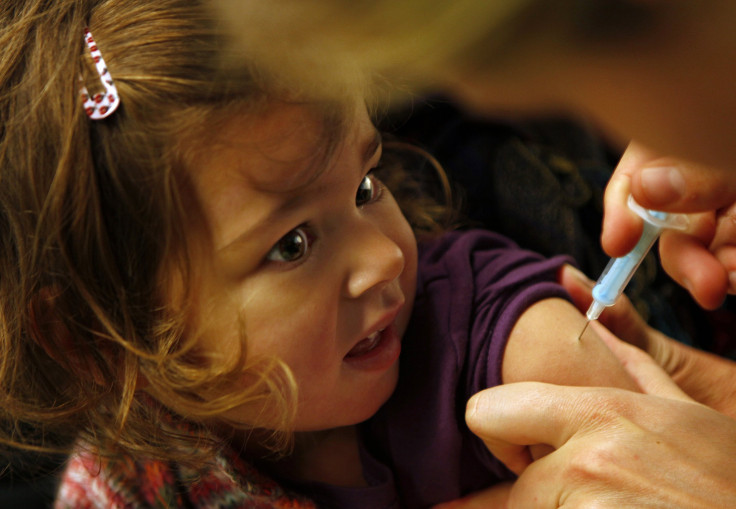Whooping Cough Vaccine Is Losing Effectiveness: Is Your Child At Risk?

Researchers have found that the vaccine that protects from whooping cough is not protecting children after a few years, leaving them susceptible to life threatening illnesses.
Children in the United States receive a series of vaccinations in the early years of their life in order to protect them from life threatening illnesses. The vaccine for diphtheria, tetanus and pertussis (DTaP) is given between the ages of four and six and consists of a series of five shots.
Researchers tracked 400,000 children from Minnesota and Oregon who were born between the years 1998 and 2003. As time wore on the incidence of cases of children coming down with the illness went from 16 per 100,000 in the first year to 138 per 100,000 in the sixth year.
In the 1990s, the vaccine for pertussis was changed because researchers found that the new immunization had far fewer side effects such as swelling and fever. This was because, unlike the old vaccine, the new vaccine did not contain whole bacteria. While this was good in the short term, it may have affected the long-term immune response and reduced the long-term immunity that children would have.
Because the older vaccine was good at conferring long-term protection, the researchers suggest that clinicians should use the "whole-cell" vaccine for the initial immunization and then switch to using the newer "acellular" one for booster shots.
Parents should also remember that keeping to the recommended vaccination schedule, in addition to being vaccinated themselves, would significantly reduce their child's chances of becoming ill.
To view the recommended vaccination schedule for children, you can visit the CDC website here.
The research was published in the journal Pediatrics and can be read here.



























